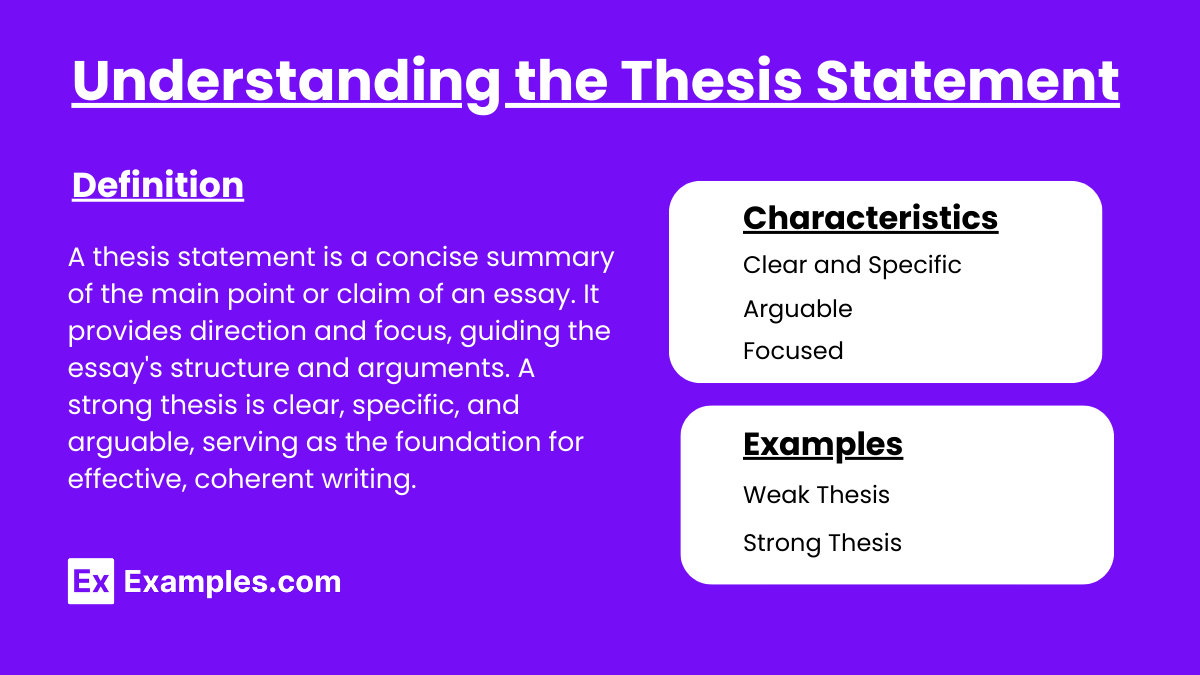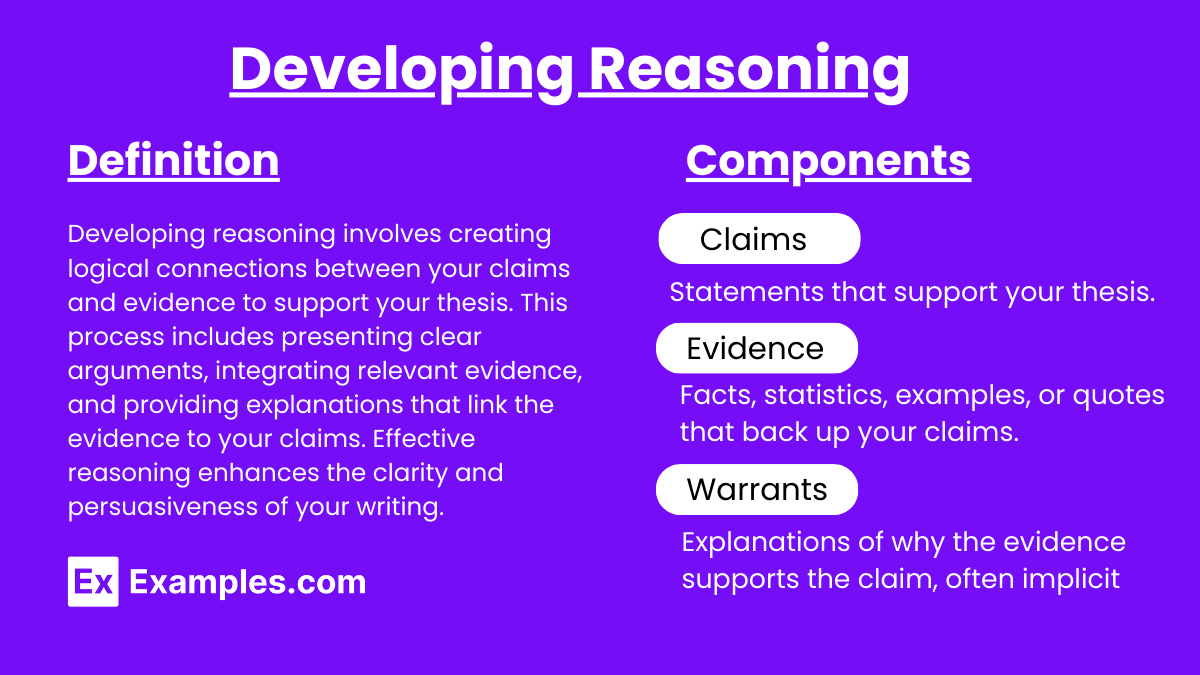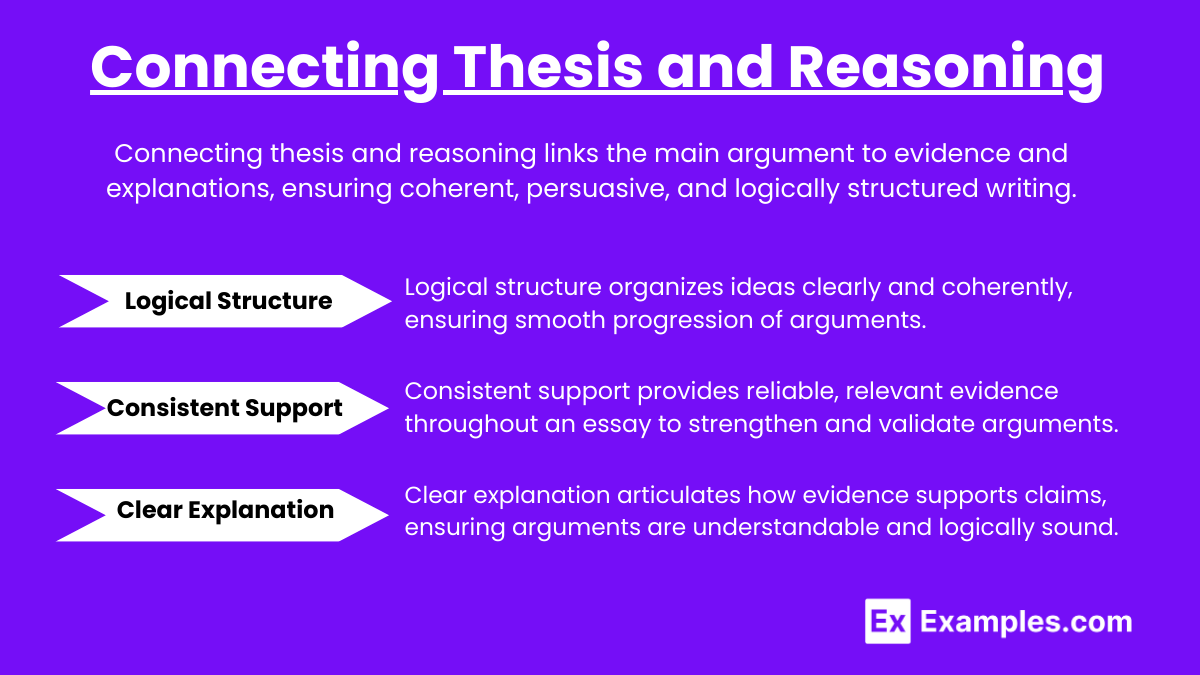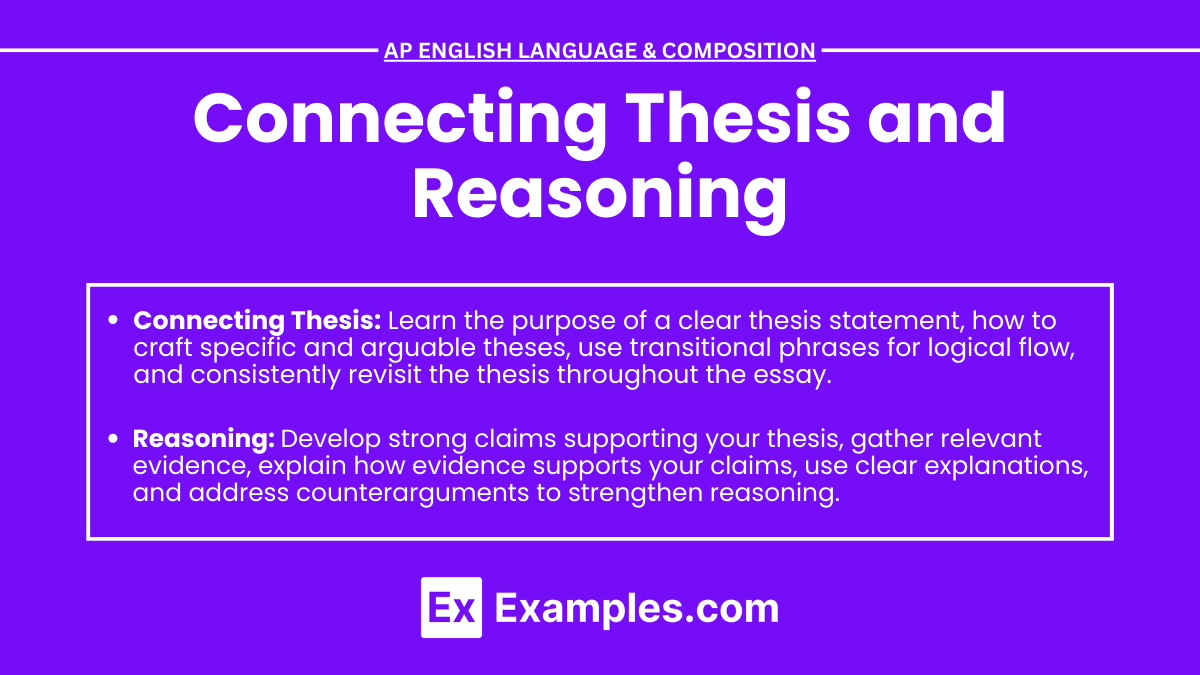In the AP English Language and Composition exam, the ability to connect your thesis statement with your reasoning is crucial for developing coherent and persuasive essays. This connection ensures that your arguments are logically structured and clearly presented, making it easier for readers to follow and be convinced by your points. A strong thesis provides a clear direction for your essay, while solid reasoning supports and elaborates on this central claim with evidence and logical explanations. Mastering the skill of connecting thesis and reasoning not only enhances the clarity and impact of your writing but also demonstrates your critical thinking and analytical abilities.
Free AP English Language and Composition Practice Test
Learning Objectives
By studying the topic of connecting thesis and reasoning, students will achieve several important learning objectives. They will learn to craft a clear and focused thesis statement that serves as the foundation of their academic essays and expository essays. Students will develop their critical thinking skills by logically linking evidence and explanations to their thesis, enhancing the coherence and persuasiveness of their arguments. This skill is crucial not only for essay writing but also for delivering effective argumentative speeches. Additionally, students will understand how to apply principles of rhetoric to strengthen their arguments, making their writing more compelling and impactful. Mastery of these techniques will enable students to produce well-organized, convincing essays that effectively communicate their ideas.
Understanding the Thesis Statement

Definition
A thesis statement is a concise summary of the main point or claim of your essay. It guides the direction of your writing and sets the tone for your arguments.
Characteristics
Clear and Specific: Avoid vague language; state exactly what you will argue.
Arguable: Present a claim that can be supported or opposed, not a fact.
Focused: Narrow down the topic to a manageable scope.
Examples
Weak Thesis: "Pollution is bad for the environment."
Strong Thesis: "Industrial pollution significantly contributes to global warming and requires stringent regulatory measures."
Developing Reasoning

Definition
Reasoning involves the logical steps that link your evidence to your thesis. It shows how your evidence supports your thesis and strengthens your argument.
Components
Claims: Statements that support your thesis.
Evidence: Facts, statistics, examples, or quotes that back up your claims.
Warrants: Explanations of why the evidence supports the claim, often implicit.
Connecting Thesis and Reasoning

Logical Structure
Ensure that each paragraph begins with a topic sentence that relates directly to your thesis. This maintains a clear and logical flow of ideas throughout your essay.
Consistent Support
Provide consistent and relevant evidence to back up each claim. Make sure that each piece of evidence directly supports your thesis.
Clear Explanation
After presenting evidence, explain how it supports your claim and, ultimately, your thesis. This step, often overlooked, is crucial for maintaining clarity and persuasiveness.
Techniques for Strong Connections
Using Transitional Phrases
Use transitional phrases to show the connection between your thesis and reasoning. Examples include "therefore," "thus," "as a result," and "because."
Addressing Counterarguments
Acknowledge and refute counterarguments to strengthen your position. This shows that you have considered multiple perspectives and reinforces the validity of your thesis.
Logical Progression
Organize your essay so that each paragraph builds on the previous one, leading the reader logically from your introduction to your conclusion.
Examples
Environmental Regulation Essay
Thesis: "Stringent environmental regulations are essential to combat industrial pollution and mitigate global warming."
Reasoning:
Claim: "Industrial emissions contribute significantly to greenhouse gas levels."
Evidence: "A study by the EPA shows that factories account for 60% of CO2 emissions."
Warrant: "Reducing factory emissions will significantly lower overall greenhouse gas levels."
Education Reform Essay
Thesis: "Implementing technology in classrooms enhances student learning and engagement."
Reasoning:
Claim: "Interactive tools make learning more engaging for students."
Evidence: "A survey found that 80% of students preferred digital learning tools over traditional methods."
Warrant: "Engaged students are more likely to retain information and perform better academically."
Conclusion
Connecting your thesis and reasoning is a fundamental skill for success in the AP English Language and Composition exam. It requires clear, logical, and well-supported arguments that guide the reader through your essay. By mastering this skill, you enhance the persuasiveness and coherence of your writing, making a compelling case for your thesis.


